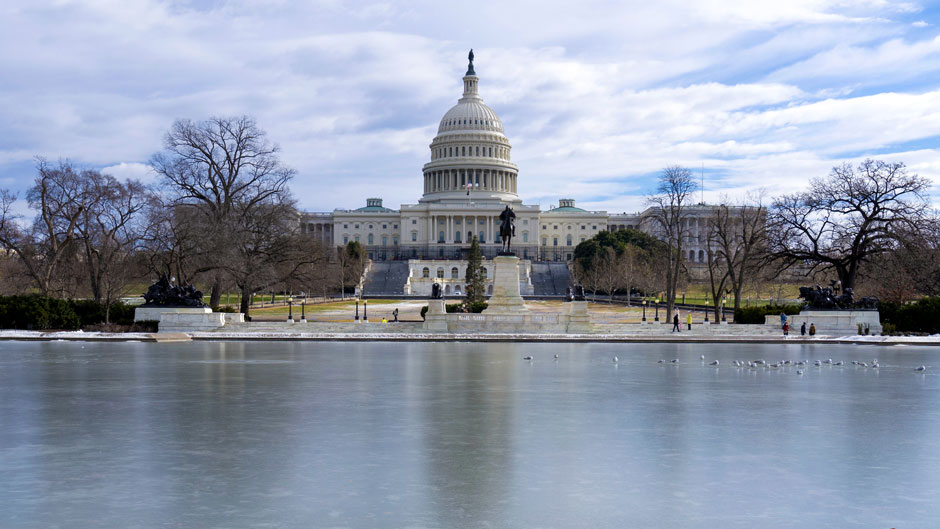The Merriam-Webster dictionary defines democracy as “a government in which the supreme power is vested in the people and exercised by them directly or indirectly through a system of representation usually involving periodically held free elections.”
The intention of the nation’s founding fathers was to make sure that there were enough checks and balances in the Constitution so that the political system in the United States would not slip back into a monarchy.
But now, the U.S. finds itself with an extremely fractured society and a polarized electorate with each political party entrenched in its own ideology. This was demonstrated in the Jan. 6, 2021 siege on the Capitol by a mob who believed former President Donald Trump’s assertion that he had won the 2020 presidential election. The mob wanted to interrupt the certification of Joe Biden’s electoral vote win, which was taking place inside the Capitol.
The divide is also evident in the growing number of bills introduced in several states meant to restrict or make it more difficult for some to vote. The Democrats are trying to pass legislation to stop these bills from being enforced but their efforts are presently stalled in Congress.
The state of the union has worried many political leaders, including President Joe Biden and former president Jimmy Carter, who penned the opinion piece “I Fear for Our Democracy” in The New York Times.
Is our democracy in danger?
“Democracy is in peril,” said Frances Hill, professor of law and Dean’s Distinguished Scholar for the Profession at the University of Miami School of Law. “No neat phrase or concept explains why. It is certainly true that our society faces rampant economic inequality that excludes far too many Americans from their idea of the ‘American dream.’ It is certainly true that separating disinformation from shared facts and values poses new challenges to talking to each other and disagreeing with each other.”
Gregory Koger, professor and chair of the political science department, believes that “the deeper challenge we face is that democracy is based on the mutual agreement that we will choose our leaders through democratic elections. This means some voters end up consenting to leaders they did not vote for. This is the foundation of our political process. That is what is in jeopardy today.”
He pointed out that there has also been an erosion in the democratic process by misrepresentation. One such example, according to Koger, is based on the U.S. Constitution, which ensures that each state gets two senators regardless of the size of the state.
“This severely disadvantages Florida, which is now the third largest state in terms of population, but we get the same number of senators as Wyoming,” he said.
But the underlying reason for many of the present tensions in the U.S. can be attributed to its big demographic change, he noted. The country is changing from a majority white, non-Hispanic population to a more diverse country. By 2050, non-Hispanic whites will no longer make up the majority of the population, Koger said.
Many people are threatened by this transition and are trying to prevent a coalition of non-whites from gaining more power, he explained. Many of those voters felt further threatened by the election of former President Barack Obama, the first African American president.
When Trump ran for president in 2016, he was building upon that simmering discontent among non-Hispanic whites about where the country was going. From the beginning of his campaign, he promised to restrict immigration by non-whites and Muslims as the primary basis for his presidency, Koger indicated.
This pushback against minority representation seems to be evident in what is happening with voter suppression legislation. Enacted in 19 states and pending in many more, the voter suppressions legislation is an effort by politicians to pick their own voters rather than accepting the foundational principle of the Constitution that the people choose their own leaders, explained Hill.
“The state legislation is based on two foundational elements—voter suppression and vote nullification,” she said. “Voter suppression makes it more difficult for economically disadvantaged people of color to vote. These efforts to suppress participation are expressed through what might appear to be neutral language. Eliminating or limiting access to drop boxes might be considered applicable to all voters, but this kind of provision will be used overwhelmingly by people who are poor, who work in jobs requiring their presence at their workplaces throughout the day, so that they cannot access drop boxes or vote during early voting or even vote on election day.”
If people insist on casting their ballots with another historic effort to vote, then these new laws provide that a state legislature can nullify the choice of the voters and replace those choices with the preferences of the state legislature, Hill pointed out.
“These two types of provisions are direct assaults on democracy. They could severely wound democracy in the 2022 mid-term election and do even greater damage in the 2024 general election,” she said.
Last week, Biden addressed these efforts to suppress the vote. “We are facing the most significant test of our democracy since the Civil War. That is not hyperbole, since the Civil War,” he said. “It doesn’t have to be this way. It doesn’t have to be, for real. We have the means. We just need to show the will—the will to save and strengthen our democracy.”

